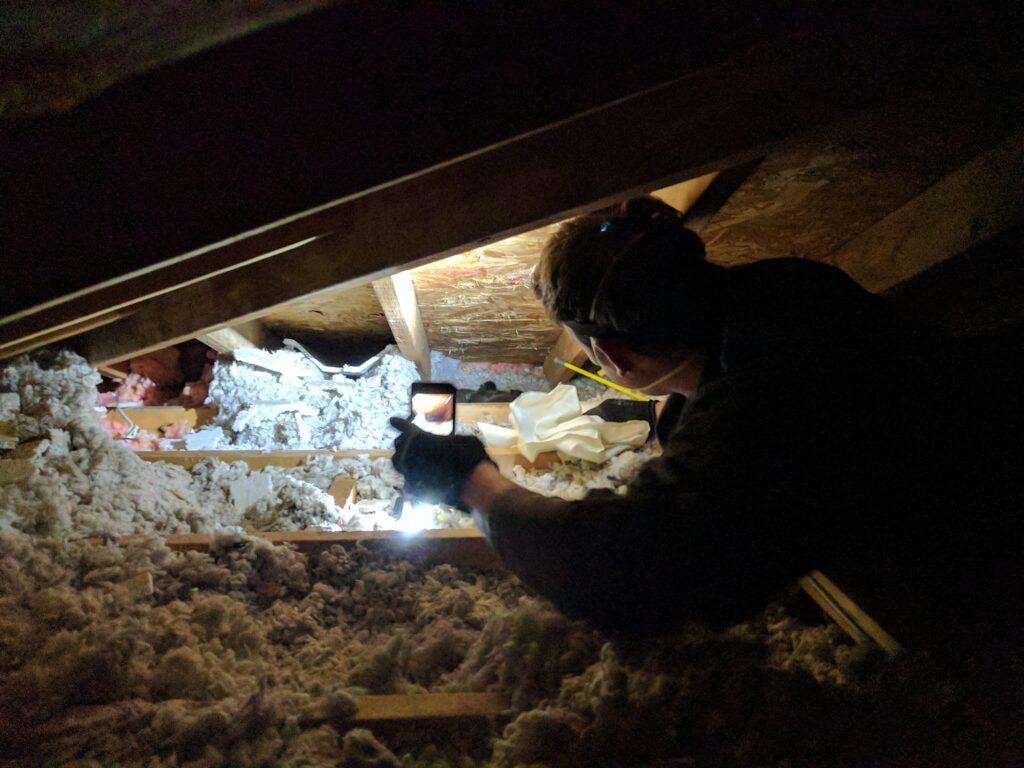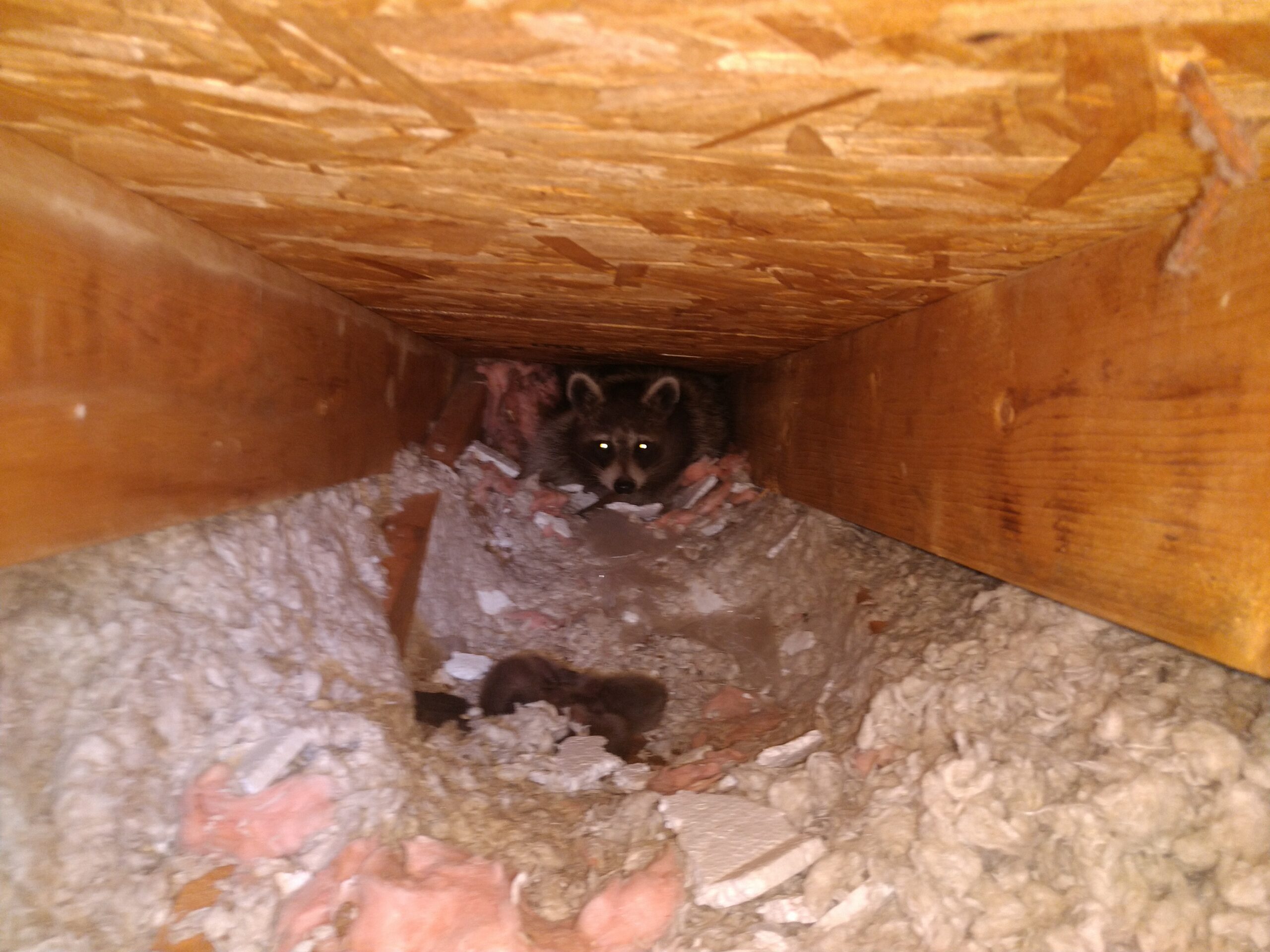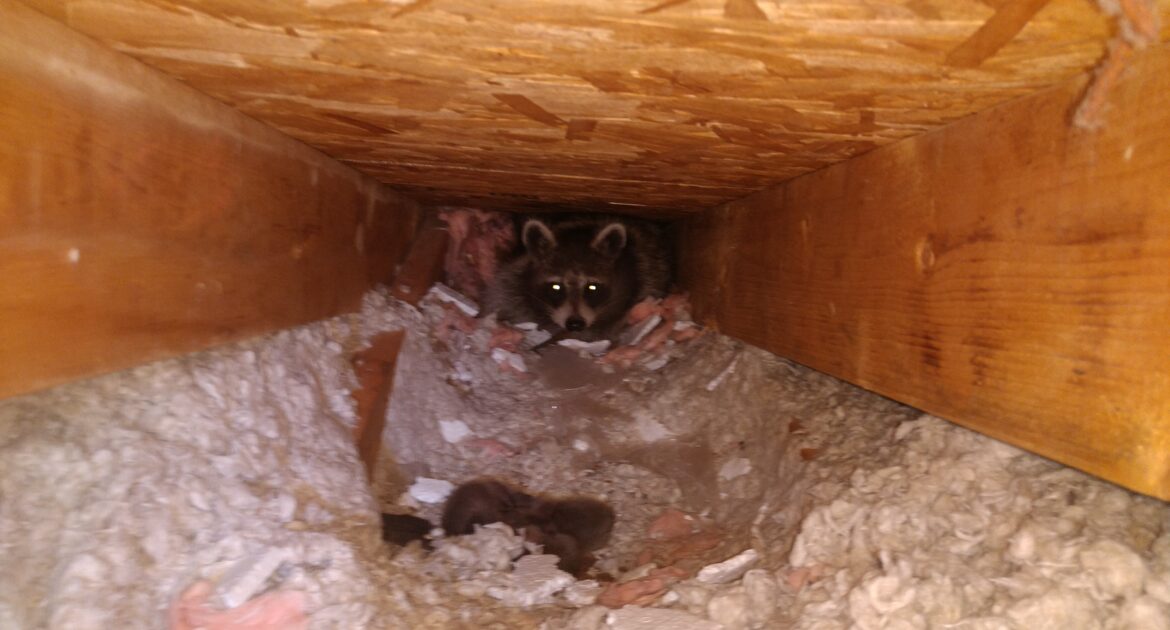With their adorable hooded face and striped tail, raccoons seem less threatening than other woodland creatures. Compared to bears, bobcats and other fierce predators, raccoons appear less aggressive and destructive, but are raccoons dangerous? Regardless of their amusing appearance, raccoons are not tame animals that you need near your house or property. You can examine why you should protect your home from raccoons and contact professionals in Coquitlam for raccoon removal in these passages.
Property Damage
Raccoons are always on the lookout for readily-available resources. If your property provides shelter, water and food, a raccoon may decide to build a nest. Even if the animal does not use your home for protection, it can damage your property by digging through your trash and tacking it around your yard. Cleaning up trash before leaving for work is a hassle, but it’s not as bad as waking up to a ransacked vegetable garden. Fruits and vegetables planted in an open plot, especially melons and tomatoes, are easy meals for raccoons.
When a raccoon decides to build a nest in your house or outdoor structure, they are even more destructive. A raccoon can tear up the attic vent or claw through a weak spot in the roof to gain access to the attic. Once the animal finds a secluded spot in your attic, shed or basement, it will begin collecting material to insulate the nest. It will use whatever is nearby to keep out the cold such as insulation, garbage and random building materials. Roof and attic repairs are expensive, and a family of raccoons can lower your property value. If you have a chimney, a raccoon can damage it when it makes a nest, and it can create a fire and smoke hazard when the nest blocks the chimney flue.
Danger to Pets
Water dishes and feeding bowls for your pets are fair game for raccoons if they’re left outside overnight. The saliva and fur from a raccoon can contaminate food bowls and make your pets gravely ill. Raccoons are scavengers, and their hair is coated with bits of rotten food particles that can give your cat or dog a foodborne illness. In addition to a long list of infectious diseases, raccoons can spread rabies to your pet and transfer ticks, fleas and other parasites. Although most healthy raccoons are not fond of confronting dogs or cats, a rabid raccoon becomes aggressive, and it’s more likely to attack your pet when it’s sick.
Health Risks
Contracting rabies from a raccoon is the biggest risk of having a nest in your home. Rabies can be spread by a scratch or bite, and rabid raccoons will attack you if you approach them or the nest. They can also contaminate your home with feces and urine and infest your property with fleas and ticks. If you spot a rabid raccoon Kitchener, call a wildlife removal service immediately.
Preventative Measures
Raccoons are formidable pests that can rip up your home to construct a nest, but you can minimize the threat by modifying your property and making minor repairs.

Yardwork
Keeping your grass mowed and your shrubs trimmed will make your yard less attractive to raccoons. They love hiding in secluded spots under bushes and debris, but if your yard is clean, they have fewer spots to hide from predators. If you trim the tree branches near your roof, you can keep the creatures from crawling on your roof and invading your attic or chimney.
Building Repairs
If you have roof damage or deteriorated wood near your storage shed, attic or basement, you can make repairs to prevent a sharp-clawed raccoon from entering the building. Raccoons are attracted to flimsy garbage cans, but you can store the trash in premium containers that you can lock or reinforce with a bungee cord.
Handling and removing raccoons are tasks only for skilled technicians. If you have a raccoon problem on your property, contact Skedaddle Humane Wildlife Control in Coquitlam. We can safely remove the raccoons using humane techniques.




